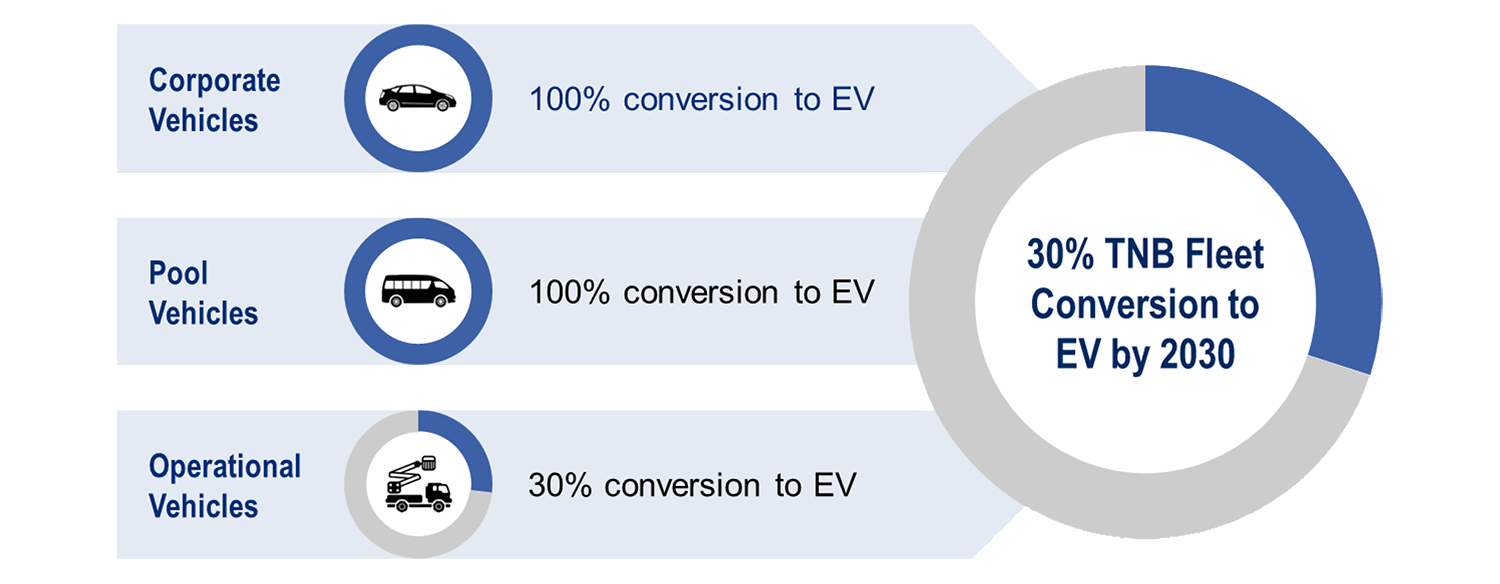TNB is making significant strides towards low-emission mobility by committing to electrify 30% of its operational fleet by 2030, marking a gradual transition of its 4,874-strong vehicle. This encompasses a diverse range, from pickup trucks and lorries to vans, passenger vehicles, and specialised units. The initiative aligns with TNB’s overarching carbon management strategy, aiming to reduce Scope 1 emissions from its vehicle fleet while reaping substantial economic benefits.
Embracing a proactive stance, TNB has initiated the piloting of off-the-road electric vehicle (EV) usage for its operations. These efforts resulted in the deployment of 98 new units, comprising 78 electric pickup trucks and 20 electric vans, thereby increasing TNB’s EV fleet to 127 units. With a targeted replacement exceeding 1,000 units, TNB's commitment echoes the Malaysian Government’s ambition outlined in the National Energy Transition Roadmap (NETR) to achieve 20% adoption of 4W EVs by 2030.

TNB Fleet Electrification Targets by 2030
The deployment of the newly introduced 98 units is anticipated to yield a remarkable reduction of up to 23% in CO2 emissions per vehicle. This translates to an annual reduction of 2,200 to 4,833 tonnes of CO2 emissions, equivalent to the carbon offsets by approximately 36,000 to 80,000 tree seedlings (approximately equivalent to 119.2 acres – 264.9 acres) over a span of 10 years1.
TNB's dedication to transitioning to electric vehicles not only advances its environmental objectives but also delivers substantial economic advantages. The integration of EVs into the end-of-useful-life replacement process is projected to generate significant cost savings. Repair and maintenance expenses are expected to plummet by 35% to 86%, while energy costs are foreseen to diminish by 25% to 70%, compared to conventional Internal Combustion Engine (ICE) vehicles.
Moreover, TNB envisions an annual reduction of fossil fuel expenditure by approximately 6% to 12% further underscoring the compelling economic rationale behind the company's commitment to EV integration. These figures highlight the dual benefits of TNB's transition to electric vehicles, aligning with its environmental goals while simultaneously bolstering its financial sustainability.
Sources:
National Energy Transition Roadmap, TNB Press Release “TNB EMBARKS ON UNPRECEDENTED INITIATIVE TO ELECTRIFY OPERATIONAL FLEET FOR A SUSTAINABLE FUTURE". Note 1: as calculated using US EPA greenhouse gas equivalent calculator
https://www.epa.gov/energy/greenhouse-gas-equivalencies-calculator